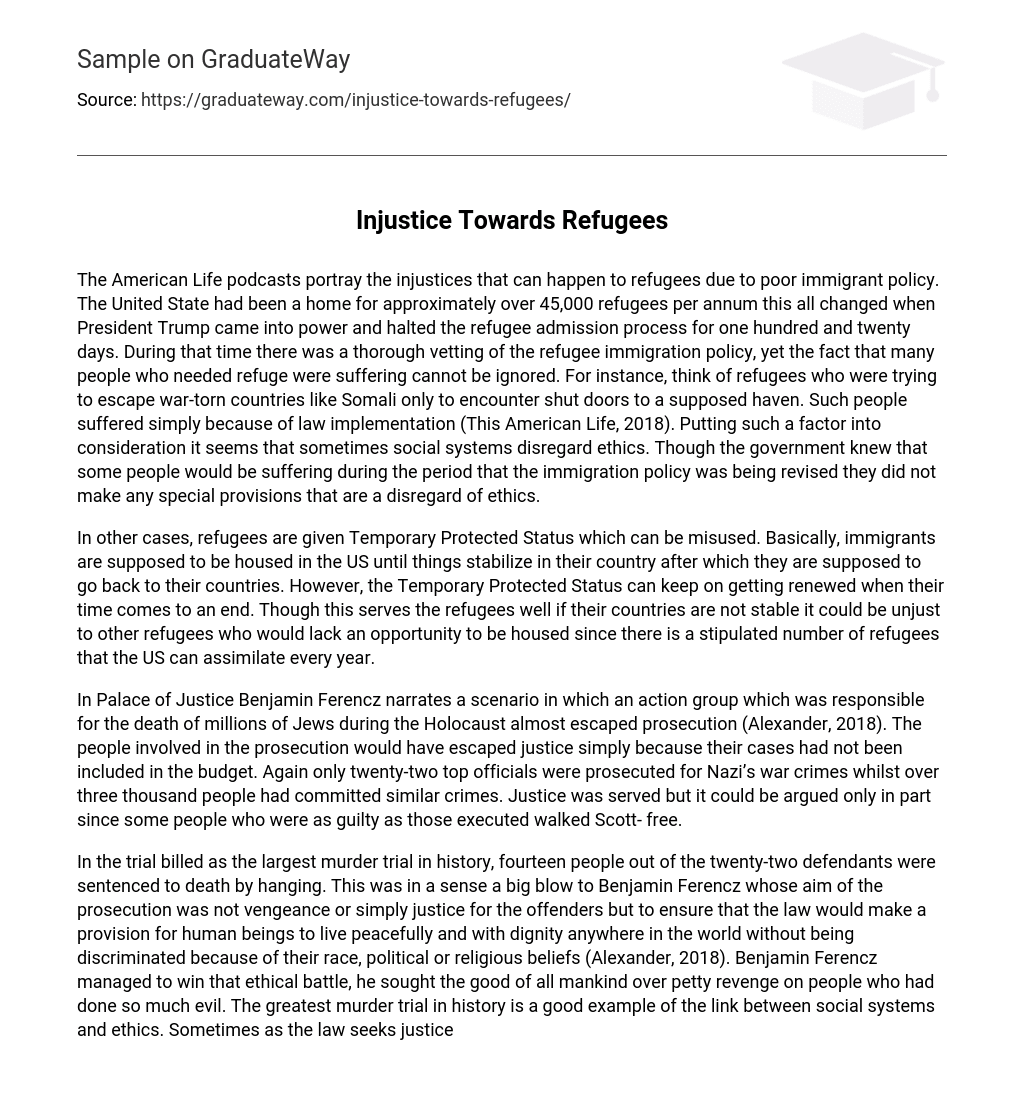The American Life podcasts portray the injustices that can happen to refugees due to poor immigrant policy. The United State had been a home for approximately over 45,000 refugees per annum this all changed when President Trump came into power and halted the refugee admission process for one hundred and twenty days. During that time there was a thorough vetting of the refugee immigration policy, yet the fact that many people who needed refuge were suffering cannot be ignored. For instance, think of refugees who were trying to escape war-torn countries like Somali only to encounter shut doors to a supposed haven. Such people suffered simply because of law implementation (This American Life, 2018). Putting such a factor into consideration it seems that sometimes social systems disregard ethics. Though the government knew that some people would be suffering during the period that the immigration policy was being revised they did not make any special provisions that are a disregard of ethics.
In other cases, refugees are given Temporary Protected Status which can be misused. Basically, immigrants are supposed to be housed in the US until things stabilize in their country after which they are supposed to go back to their countries. However, the Temporary Protected Status can keep on getting renewed when their time comes to an end. Though this serves the refugees well if their countries are not stable it could be unjust to other refugees who would lack an opportunity to be housed since there is a stipulated number of refugees that the US can assimilate every year.
In Palace of Justice Benjamin Ferencz narrates a scenario in which an action group which was responsible for the death of millions of Jews during the Holocaust almost escaped prosecution (Alexander, 2018). The people involved in the prosecution would have escaped justice simply because their cases had not been included in the budget. Again only twenty-two top officials were prosecuted for Nazi’s war crimes whilst over three thousand people had committed similar crimes. Justice was served but it could be argued only in part since some people who were as guilty as those executed walked Scott- free.
In the trial billed as the largest murder trial in history, fourteen people out of the twenty-two defendants were sentenced to death by hanging. This was in a sense a big blow to Benjamin Ferencz whose aim of the prosecution was not vengeance or simply justice for the offenders but to ensure that the law would make a provision for human beings to live peacefully and with dignity anywhere in the world without being discriminated because of their race, political or religious beliefs (Alexander, 2018). Benjamin Ferencz managed to win that ethical battle, he sought the good of all mankind over petty revenge on people who had done so much evil. The greatest murder trial in history is a good example of the link between social systems and ethics. Sometimes as the law seeks justice ethics may be ignored which paradoxically may cause justice to be undermined.





